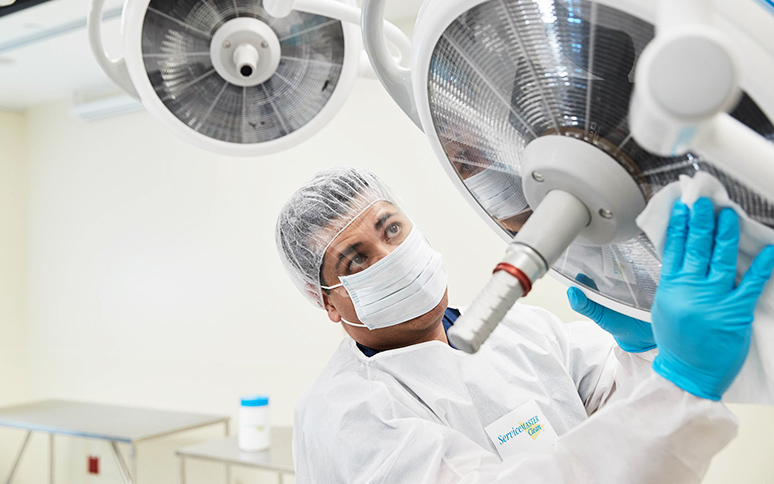Bloodborne Pathogens: How to Limit Your Risk of Exposure to Bloodborne Pathogens
Bloodborne pathogens are a big risk for those who work in the healthcare field. Viruses and bacteria can easily be transmitted through blood and body fluids, causing a variety of pathogens. Luckily, there are some things you can do to reduce your risk of exposure to pathogens like hepatitis B, hepatitis C, and HIV. Use this information from ServiceMaster Clean to learn about common ways healthcare workers are exposed to pathogens in the workplace, plus tips on how you can limit your risk.
How Are People Exposed to Bloodborne Pathogens?
Bloodborne pathogen exposure can happen in a variety of ways, all of which can be dangerous to your health. Common ways people in the healthcare field get exposed include:
Direct contact with infected blood. During direct contact, infected blood or a bodily fluid from one individual can be transmitted through an entry site.
Indirect contact with infected blood. This occurs when a person touches an object that contains infected blood or bodily fluids. This may happen while picking up wound dressings, cleaning an area, or testing blood improperly.
Respiratory droplet transmission. This happens when a staff member inhales droplets from a person that is infected via a sneeze, cough, or similar function.
Vector-borne transmission. This occurs when a person is infected via an indirect source or carrier like a bug bite.
Preventing Bloodborne Pathogen Exposure
Following basic procedures in your facility can help limit your exposure to bloodborne pathogens. Follow these guidelines to help further prevent infection while you're at work:
Avoid contact with blood and body fluids whenever possible.
Always wear disposable gloves when providing care, even for very quick, minor procedures.
Remove gloves without contacting the soiled portion of the glove and dispose of them in the appropriate containers.
Wear protective coverings like eyeglasses, masks, and a gown when providing care.
Always cover cuts and scrapes when working in a healthcare capacity, even if you are not performing a procedure.
Wear a CPR mask when giving mouth-to-mouth.
Wash your hands before and after providing care. Use hand sanitizer when conditions do not allow for washing with warm water and soap.
Use sharps disposal containers for used needles.
Disinfect all equipment that may have come into contact with blood or body fluids.
Bloodborne Pathogen Awareness
Bloodborne pathogen exposure awareness is particularly important for individuals who work in the healthcare field. To ensure that proper procedures are being followed in your facility, use these tips:
Have staff members read up on bloodborne pathogen information. The Centers for Disease Control and Prevention (CDC) has a list of resources on bloodborne pathogens to help your team refresh their knowledge.
Ask employees to take a bloodborne pathogen quiz. These can help you better understand their current knowledge of policies and procedures so that you can enact better training programs.
Update the bloodborne pathogen exposure control plan at your facility. The Occupational Safety and Health Administration (OSHA) requires employers to have a written plan that outlines what protective measures they will take to reduce exposure incidents. It is also required to make this information available to all employees.
Bloodborne pathogens are a serious concern in the healthcare industry. By following protocol, you can protect yourself from accidental transmission of bloodborne pathogens and other common pathogens found in healthcare settings.
For extra protection, call ServiceMaster Clean. Our healthcare cleaning services help with risk reduction, infection control and prevention, and environment improvement while using best practices and procedures published by the leading industry organizations. Contact us today to discover how we can help you mitigate bloodborne pathogen exposure in your facility.








